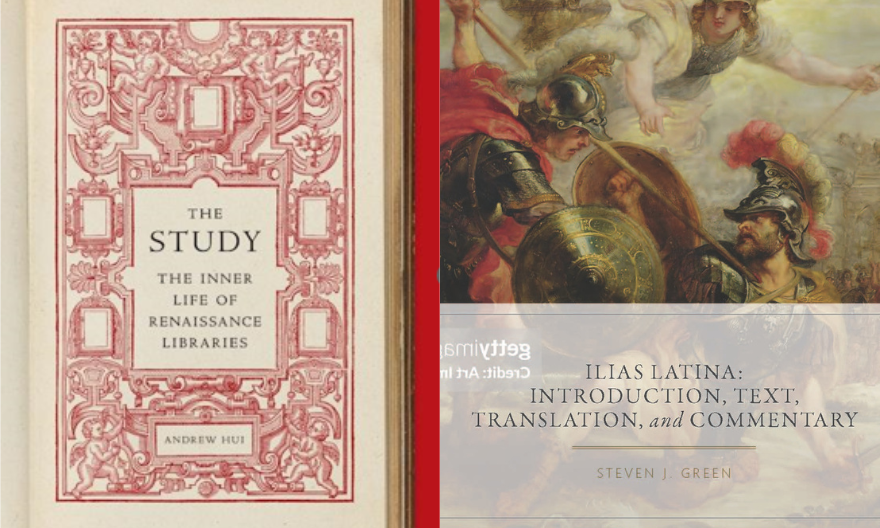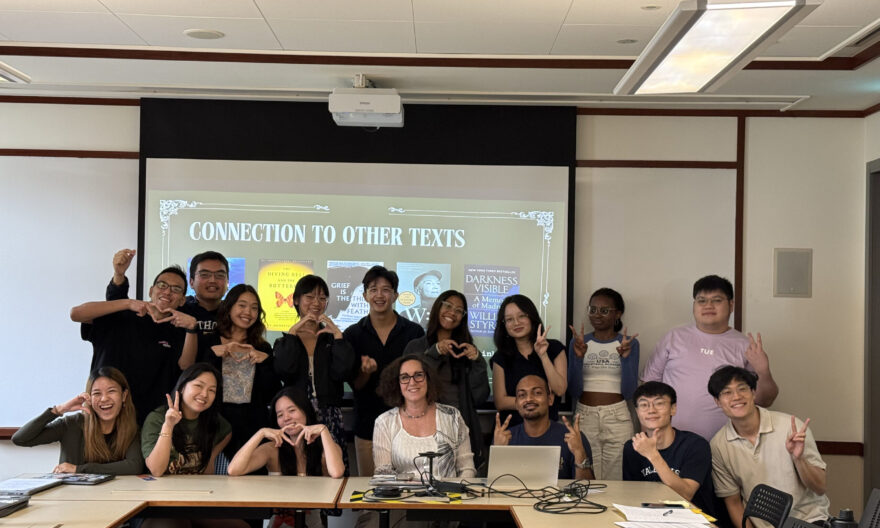Students share their language-learning journeys at Yale-NUS
Four students explain how Yale-NUS has supported them in discovering new languages and cultures, in and outside of the classroom
Learning a new language is an essential part of many students’ college experience. With individualised support, vibrant opportunities, and a passionate, diverse community, many Yale-NUS College students have jump-started their language learning journey at the College. We talk to four students about why they decided to take up a new language, and how Yale-NUS has enabled their language learning journey.
Language learning had always been a goal in university for Shanna Kaur (Class of 2023). With Chinese a common language in multilingual Singapore, she decided to delve into it in her second semester in College despite its differences from languages based on a Roman alphabet. While she acknowledged the difficulty of learning Chinese as a non-native speaker, she credited her instructors at Yale-NUS with creating a safe environment to make mistakes and learn from them.
“Both of my laoshis are very friendly and encouraging,” shared Shanna, using the Mandarin word for teacher. “They really make the effort to foster a culture of learning in the classroom that gives us the space to make mistakes without being ashamed or embarrassed.”
Her experience led her to believe in the power of practice in language studies, and Yale-NUS offers numerous formal and informal opportunities to create an immersive environment for language learning. Similarly learning Chinese is Ayyappan Madhumitha (Madhu) (Class of 2023) who hopes to better engage with Chinese-speaking elderly whom she interacts with as part of her volunteering work. Madhu credited Yale-NUS’s fully residential environment with helping her engage with Chinese culture.
 Madhu (front row, third from right) and Shanna (back row, second from right) with their Advanced Chinese 1 classmates. Image provided by Shaharaj Ahmed.
Madhu (front row, third from right) and Shanna (back row, second from right) with their Advanced Chinese 1 classmates. Image provided by Shaharaj Ahmed.
“I think living with friends who speak the language has been most helpful, and they were very charitable with their time when helping me,” she shared, echoing the belief that completely immersing oneself in the language is the best way to achieve proficiency.
The mutually supportive environment students create is formalised through the peer tutoring programme at Yale-NUS, where students can seek individualised support from fellow students more proficient in a language through casual, weekly conversation sessions.
“The peer tutoring system definitely helped a lot,” shared Nicolas Wong (Class of 2025), who is studying Spanish, “with peer tutoring, I could find a casual, open space for me to hone my speaking and writing; naturally, the larger Yale-NUS community also helped with this because of the Spanish speakers we have here!”
But —as is with so many aspects of the Yale-NUS experience—learning is a two-way street. Just as tutees receive expert guidance in a non-judgmental environment, peer tutors also benefit from experience in pedagogy—or even, as in the case of Wu Lingxin (Class of 2022), a passion in picking up languages herself.
“Seeing my tutees learn the language over time has been so inspiring,” shared Lingxin, a peer tutor for Chinese, “They inspire me to keep learning and believe that I’ll be able to pick up a language during my time at Yale-NUS.” Lingxin is learning Arabic, which is offered through the College’s partnership with NUS’ Centre for Language Studies. Yale-NUS College offers students the possibility to study a variety of languages on its campus and in partnership with its parent institutions, Yale University and the National University of Singapore. Next semester, Lingxin will be embarking on a semester abroad at The Middlebury School in Jordan, an intensive language programme where she will continue to hone her language skills.
Ultimately, studying a language at Yale-NUS is not simply about understanding different cultures, but also to appreciate connections that underline diverse communities across the world. As Nicolas put it, “I feel like just focusing on the differences [between cultures] would be to discredit the wonder I had when I discovered that Spanish speakers had a similar expression to English, or that certain countries had similar norms to Chinese culture.
“Some things really do transcend boundaries, and I think that’s very nice!”




